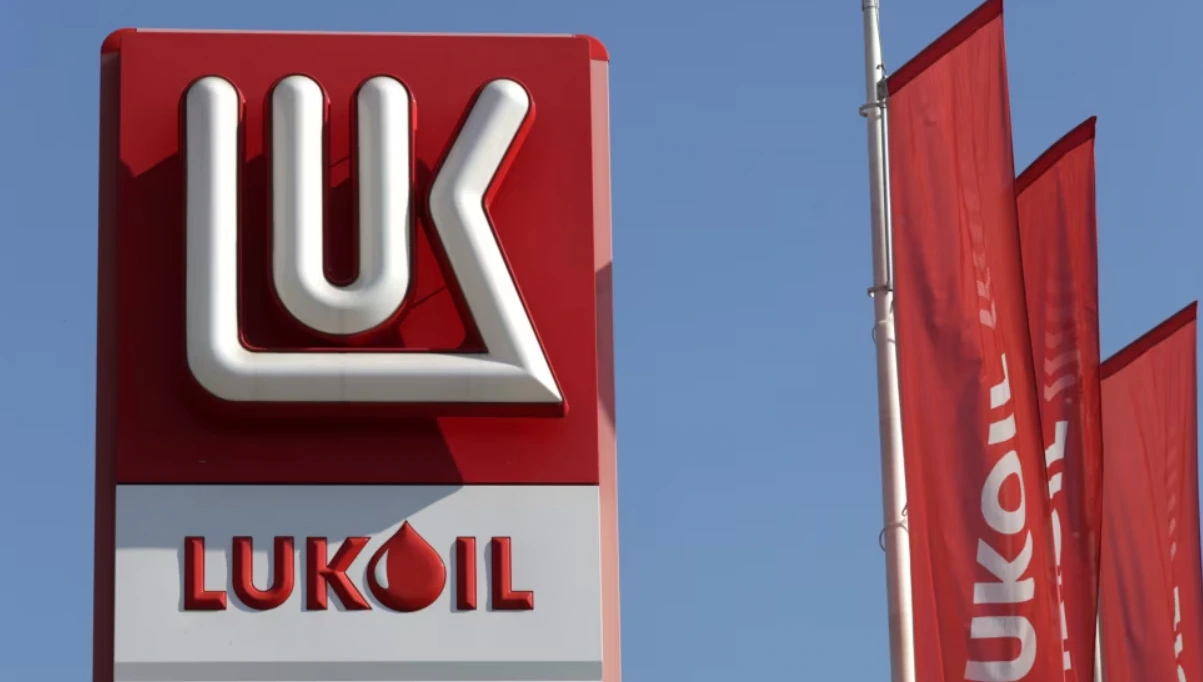WASHINGTON — The US Treasury Department on Friday issued licenses that permit potential buyers to negotiate the purchase of Russia’s Lukoil foreign assets, even as the company remains under sweeping sanctions.
The decision comes amid growing international concern over the impact of Russian oil sanctions on global energy markets.
The US imposed sanctions on Lukoil and Rosneft in October as part of efforts to penalize Moscow for its war in Ukraine. These sanctions blocked most transactions involving American companies and the Russian energy giants.
Lukoil’s overseas operations, though representing a small fraction of global production, have faced increasing disruption since the restrictions were implemented.
Under the new authorization, companies can engage in discussions with Lukoil about selling its foreign holdings until Dec. 13.
A separate license allows certain business activities with Lukoil’s Bulgarian entities, including the Burgas refinery, to continue through April 29, 2026.
The Treasury stressed that any transaction must fully sever Lukoil’s ownership and control of the assets. Proceeds from any sale are required to be placed in an escrow account inaccessible to Lukoil while sanctions remain in effect.
A Treasury official said the licenses “protect energy stability for allies while ensuring sanctions continue to limit Russia’s access to revenue.” Energy analysts highlighted the importance of these assets despite their limited share of global oil output.
Lukoil’s foreign operations represent roughly half a percent of worldwide oil production, yet control over refineries and pipeline stakes can influence regional energy security.
Dr. Laura Chen, an energy finance expert at the Center for Strategic Energy Studies, said, “The rules around escrow accounts and severing ties create a complex environment for buyers.
Any deal will require careful planning to comply with sanctions while maintaining operational continuity.” The licenses also cover Lukoil’s stakes in Kazakh projects, such as the Caspian Pipeline Consortium and Tengizchevroil.
The CPC pipeline transports about 1.4 million barrels of crude per day, roughly 1.5 percent of global oil, from Kazakhstan to the Black Sea.
Tengizchevroil is one of Kazakhstan’s largest oil ventures, where Lukoil holds a minority interest alongside major international companies.
Allowing transactions in these projects is intended to protect uninterrupted energy flows for US partners and allies, even as Washington limits Russia’s access to revenue.
Bulgarian authorities welcomed the US move, noting it provides “stability, predictability and peace of mind for citizens and businesses.”
A refinery worker in Burgas, speaking anonymously, said the decision was “a relief” and would help secure jobs and operations.
Analysts caution that while the licenses permit negotiations, actual sales could face significant obstacles. “Even with licenses, buyers must navigate legal, financial and geopolitical risks,” Chen said.
Global production, Lukoil’s foreign assets account for about 0.5 percent of worldwide oil output.
Pipeline throughput, The Caspian Pipeline Consortium carries roughly 1.4 million barrels per day.
Bulgaria license, The OFAC authorization for Lukoil’s Bulgarian entities runs until April 29, 2026.
Tengizchevroil stake, Lukoil holds a minority share alongside Chevron and ExxonMobil. The US action creates a narrow window for Lukoil to sell its international holdings under strict conditions.
If a transaction is completed, it could reshape ownership in key refining and production hubs while keeping energy supplies stable.
However, escrow rules and ongoing sanctions may limit interest from buyers. The Burgas refinery, a critical Bulgarian asset, will continue operating, averting an immediate disruption to fuel supply in the region.
Analysts note that geopolitical developments could still influence whether deals are concluded.
By allowing negotiations for the sale of Lukoil’s foreign assets, the US is balancing sanctions enforcement with energy security concerns.
Transactions must sever Lukoil’s ties and ensure funds remain inaccessible, a structure that limits the Russian company’s benefit while keeping key operations functional.
The outcome of these discussions will likely have implications for regional energy markets and international investors.
